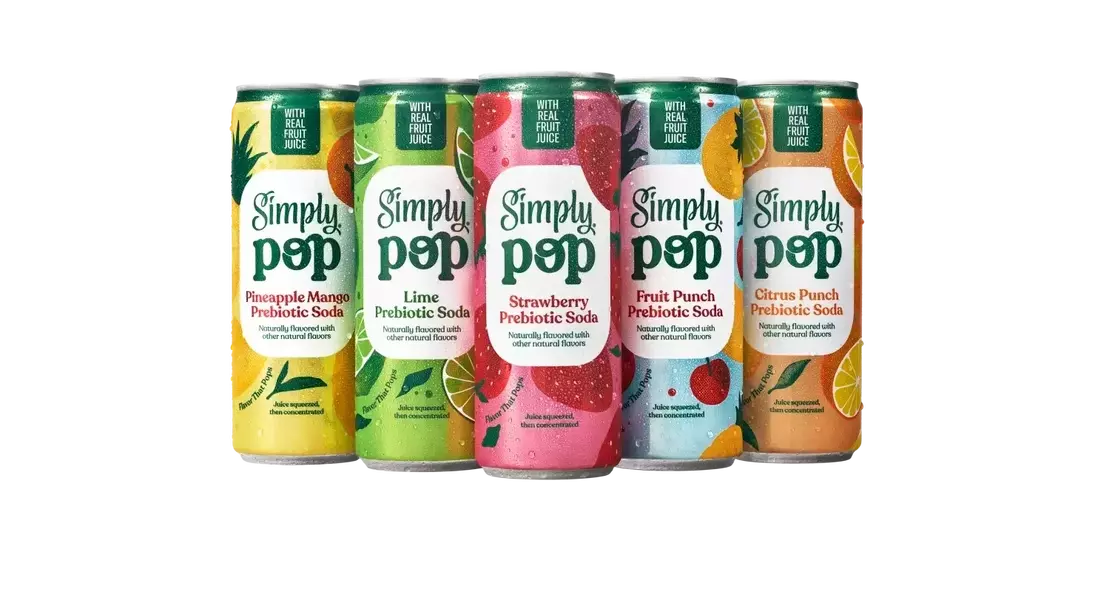
The beverage giant Coca-Cola is set to introduce its latest innovation, Simply Pop, a prebiotic soda brand. This strategic move aims to tap into the burgeoning health-focused drink market. Despite declining traditional soda consumption in the US over the past two decades, the prebiotic soda segment has witnessed substantial growth. Euromonitor International projects sales in this category to increase from $197 million in 2020 to around $440 million by 2024. Simply Pop will debut on the West Coast and in the Southeastern United States later this month, featuring fruity flavors like pineapple mango, lime, strawberry, fruit punch, and citrus punch. Each serving of Simply Pop contains no added sugar, 25% to 30% real fruit juice, vitamin C, zinc, and 6g of prebiotic fiber. While Coca-Cola's entry faces competition from established brands like Olipop and Poppi, the company's extensive industry experience and robust marketing capabilities offer a significant advantage.
Emerging Trends and Market Dynamics
The shift towards healthier beverage options has transformed the soda landscape. Traditional soda consumption has plummeted due to heightened health awareness and the emergence of alternative drinks such as cold brews, energy drinks, and flavored waters. However, prebiotic sodas have emerged as a popular choice, especially among younger consumers like millennials and Gen Z. The growing interest in gut health has propelled the popularity of prebiotics, which are believed to support digestive wellness. Coca-Cola's Simply Pop aligns with this trend, offering a product that caters to health-conscious individuals while incorporating familiar flavors from its existing Simply juice brand.
The prebiotic soda market has seen remarkable expansion, driven by consumer demand for healthier alternatives. Brands like Olipop and Poppi have successfully positioned themselves as leaders in this niche, securing substantial funding and media attention. Olipop recently raised $50 million, valuing the company at $1.85 billion, while Poppi made headlines with its Super Bowl advertisement. These brands have effectively marketed their products as superior choices compared to conventional sodas. Yet, the health claims surrounding prebiotic beverages remain contentious. Poppi is currently involved in settlement discussions over a lawsuit questioning the health benefits of its products, highlighting potential regulatory challenges for the entire category.
Coca-Cola's Strategic Advantage and Challenges
Coca-Cola's extensive experience in the beverage industry provides a solid foundation for its venture into prebiotic sodas. With revenues of $47 billion in 2024, Coca-Cola dwarfs competitors like Olipop, whose estimated sales are over $400 million. The company's vast marketing and distribution network will be instrumental in promoting Simply Pop, particularly in key markets like the West Coast and Southeastern US. The introduction of Simply Pop also leverages Coca-Cola's successful Simply juice brand, ensuring familiarity and trust among consumers. Additionally, the inclusion of real fruit juice, vitamins, and prebiotic fiber positions Simply Pop as a nutritious option within the crowded beverage market.
Despite these advantages, Coca-Cola faces several challenges. Previous attempts to capitalize on emerging trends have yielded mixed results. For instance, the short-lived Coke Spiced flavor was discontinued shortly after its launch. Moreover, the ongoing controversy surrounding health claims in the prebiotic soda sector may impact consumer perception. Regulatory scrutiny could pose additional hurdles, requiring Coca-Cola to navigate carefully. Nevertheless, the company's robust infrastructure and innovative approach position it favorably to capture a share of the rapidly growing prebiotic soda market. As Simply Pop hits the shelves, Coca-Cola aims to redefine the health-focused beverage landscape, appealing to a broader audience seeking both taste and nutrition.
